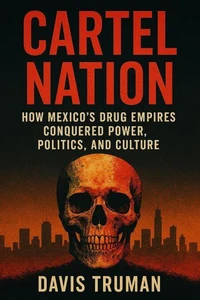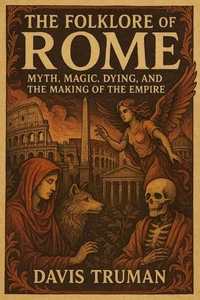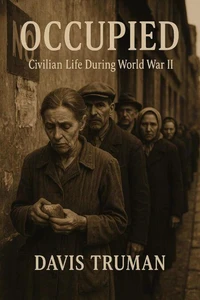Ordinary Men Turning Into Monsters The Dark Descent of The Everyday Man
Par :Formats :
Disponible dans votre compte client Decitre ou Furet du Nord dès validation de votre commande. Le format ePub est :
- Compatible avec une lecture sur My Vivlio (smartphone, tablette, ordinateur)
- Compatible avec une lecture sur liseuses Vivlio
- Pour les liseuses autres que Vivlio, vous devez utiliser le logiciel Adobe Digital Edition. Non compatible avec la lecture sur les liseuses Kindle, Remarkable et Sony
 , qui est-ce ?
, qui est-ce ?Notre partenaire de plateforme de lecture numérique où vous retrouverez l'ensemble de vos ebooks gratuitement
Pour en savoir plus sur nos ebooks, consultez notre aide en ligne ici
- FormatePub
- ISBN8230303367
- EAN9798230303367
- Date de parution26/11/2024
- Protection num.pas de protection
- Infos supplémentairesepub
- ÉditeurIndependently Published
Résumé
How can ordinary people, whom we consider "normal, " unexpectedly commit repulsive and criminal actions that we would never have thought them capable of? The concept of evil is one of the great themes in history, philosophy, sociology, and psychology. We have always tended to categorize the perpetrators of evil as "the others, " "them, " bad people, monsters, and true villains who commit atrocities that "we" could never carry out.
The German philosopher Hannah Arendt challenged this clear distinction between inherently good people and inherently bad people and introduced a new, original paradigm known as the "banality of evil."Arendt's concept suggests that the vast majority of German soldiers who followed Hitler's orders and committed horrific crimes were not sadistic monsters but ordinary men, not much different from us. These normal men, placed within a context of hierarchy, modern bureaucracy, and obedience to authority, were capable of killings, abuse, torture, and inhumane treatment of victims.
In essence, there were monsters, yes, but they were few, far fewer than commonly believed. Starting from here, we aim to answer how ordinary people can transform into real monsters. We will trace a path that leads up to the present day.
The German philosopher Hannah Arendt challenged this clear distinction between inherently good people and inherently bad people and introduced a new, original paradigm known as the "banality of evil."Arendt's concept suggests that the vast majority of German soldiers who followed Hitler's orders and committed horrific crimes were not sadistic monsters but ordinary men, not much different from us. These normal men, placed within a context of hierarchy, modern bureaucracy, and obedience to authority, were capable of killings, abuse, torture, and inhumane treatment of victims.
In essence, there were monsters, yes, but they were few, far fewer than commonly believed. Starting from here, we aim to answer how ordinary people can transform into real monsters. We will trace a path that leads up to the present day.
How can ordinary people, whom we consider "normal, " unexpectedly commit repulsive and criminal actions that we would never have thought them capable of? The concept of evil is one of the great themes in history, philosophy, sociology, and psychology. We have always tended to categorize the perpetrators of evil as "the others, " "them, " bad people, monsters, and true villains who commit atrocities that "we" could never carry out.
The German philosopher Hannah Arendt challenged this clear distinction between inherently good people and inherently bad people and introduced a new, original paradigm known as the "banality of evil."Arendt's concept suggests that the vast majority of German soldiers who followed Hitler's orders and committed horrific crimes were not sadistic monsters but ordinary men, not much different from us. These normal men, placed within a context of hierarchy, modern bureaucracy, and obedience to authority, were capable of killings, abuse, torture, and inhumane treatment of victims.
In essence, there were monsters, yes, but they were few, far fewer than commonly believed. Starting from here, we aim to answer how ordinary people can transform into real monsters. We will trace a path that leads up to the present day.
The German philosopher Hannah Arendt challenged this clear distinction between inherently good people and inherently bad people and introduced a new, original paradigm known as the "banality of evil."Arendt's concept suggests that the vast majority of German soldiers who followed Hitler's orders and committed horrific crimes were not sadistic monsters but ordinary men, not much different from us. These normal men, placed within a context of hierarchy, modern bureaucracy, and obedience to authority, were capable of killings, abuse, torture, and inhumane treatment of victims.
In essence, there were monsters, yes, but they were few, far fewer than commonly believed. Starting from here, we aim to answer how ordinary people can transform into real monsters. We will trace a path that leads up to the present day.























